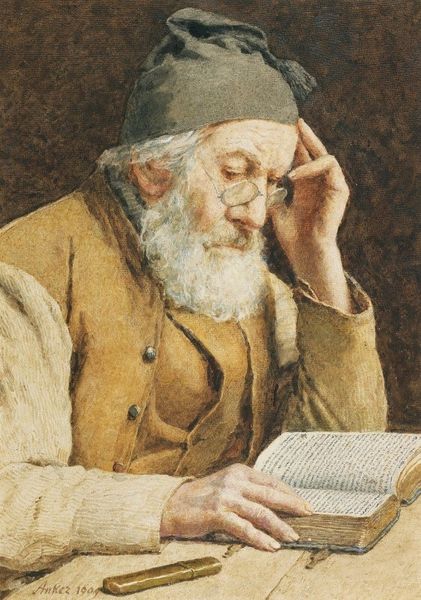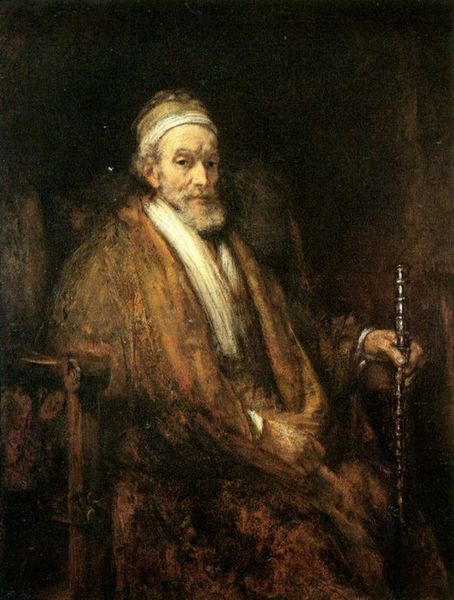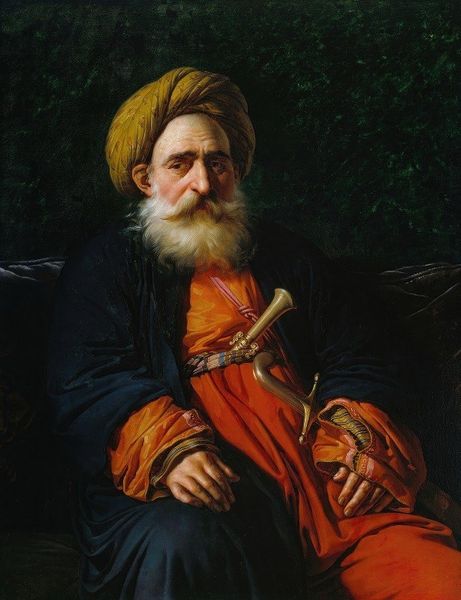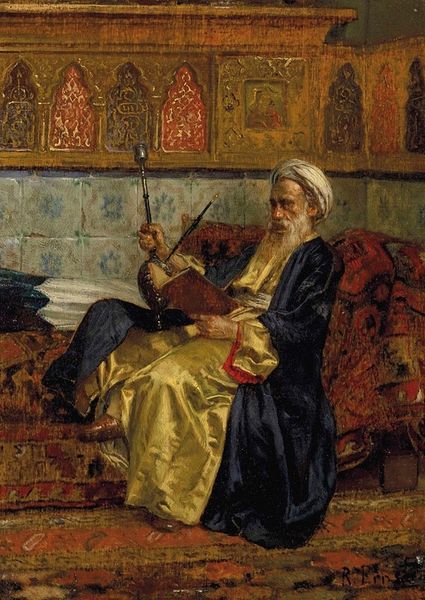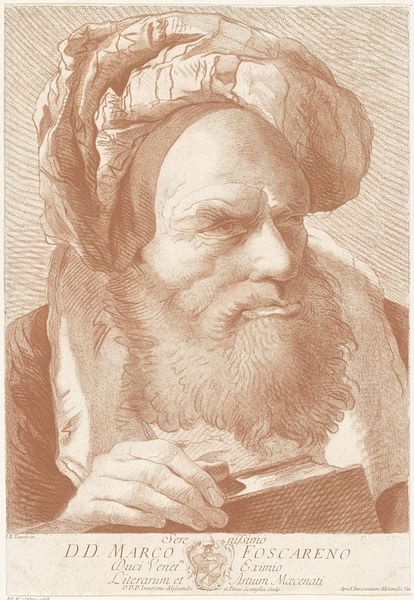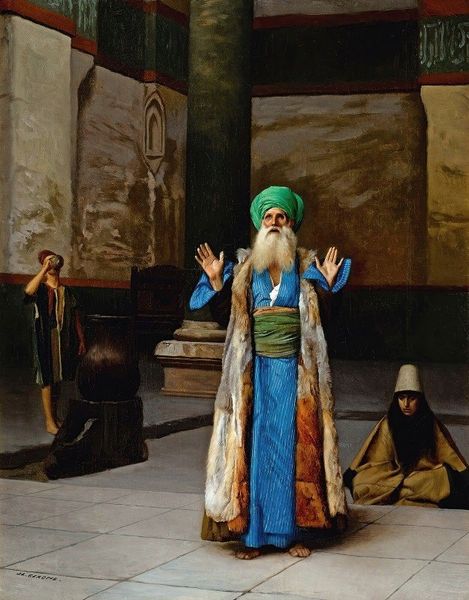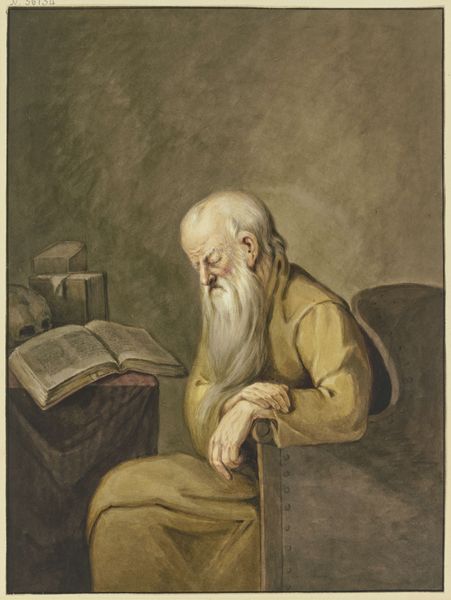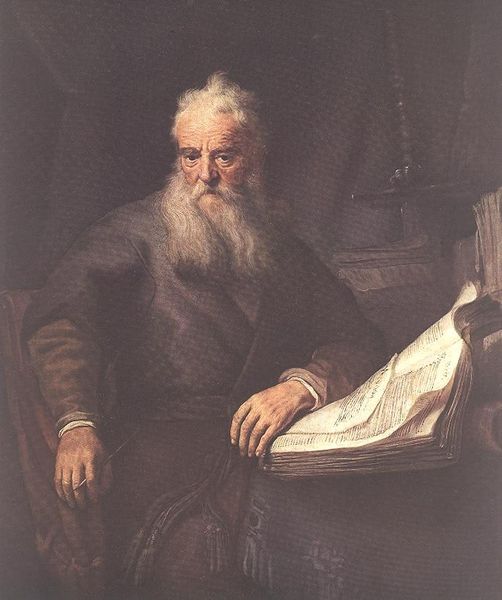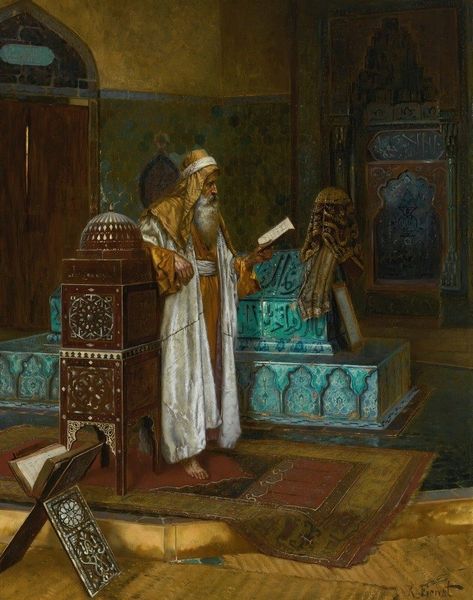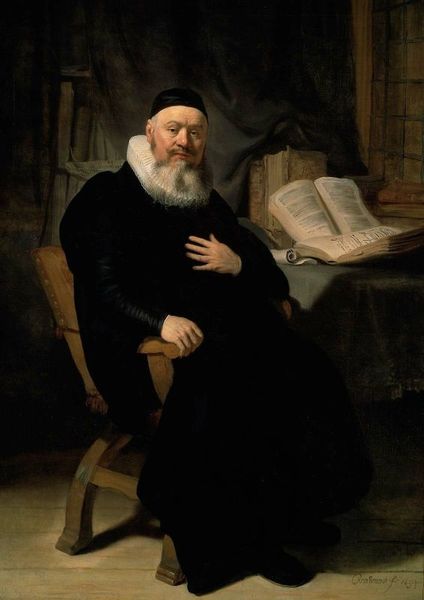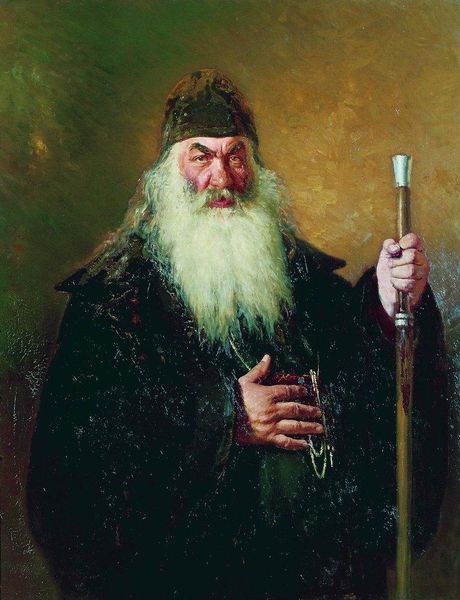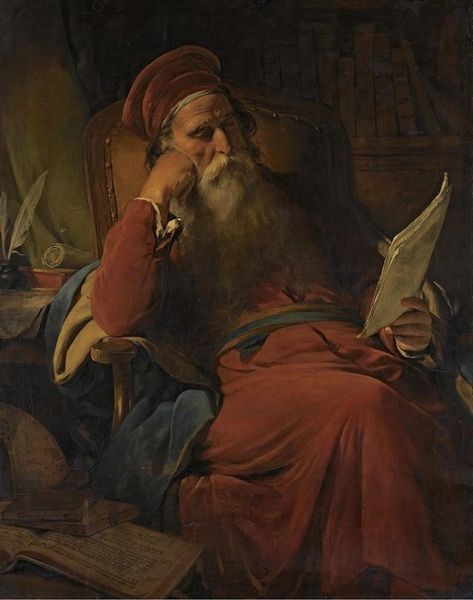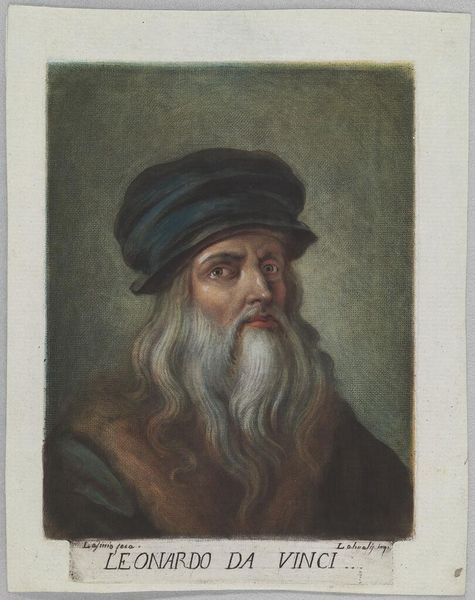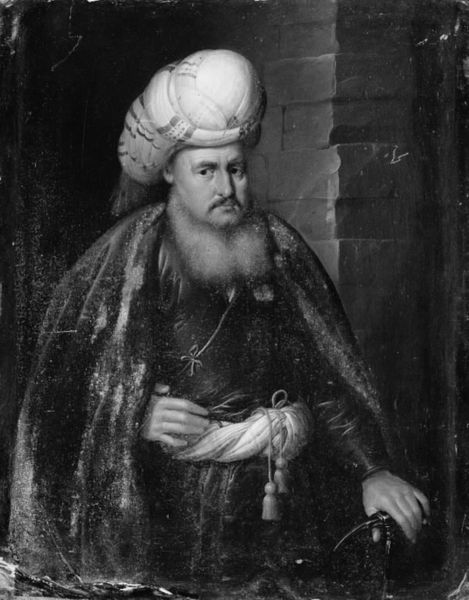
Copyright: Public domain
Jean-Léon Gérôme painted this portrait of a Mufti reading in his prayer stool at an unknown date. This depiction of Islamic scholarship and piety invites us to consider the public role of art in shaping perceptions of other cultures. Gérôme was a key figure in the Orientalist movement, which saw European artists depicting scenes from the Middle East and North Africa. The image creates meaning through visual codes; the Mufti's serene expression and the ornate details of his surroundings evoke a sense of exoticism. Painted during a period of intense colonial expansion, the painting reflects the power dynamics between Europe and the Islamic world. It’s important to acknowledge the politics of imagery; did such paintings reinforce stereotypes? Did they serve as propaganda for colonial powers? Or did they foster cross-cultural understanding? By researching the institutional history of Orientalist art, including exhibition records and critical reviews, we can better understand the social conditions that shaped its production and reception. Ultimately, the meaning of this painting is contingent on its social and institutional context.
Comments
No comments
Be the first to comment and join the conversation on the ultimate creative platform.
